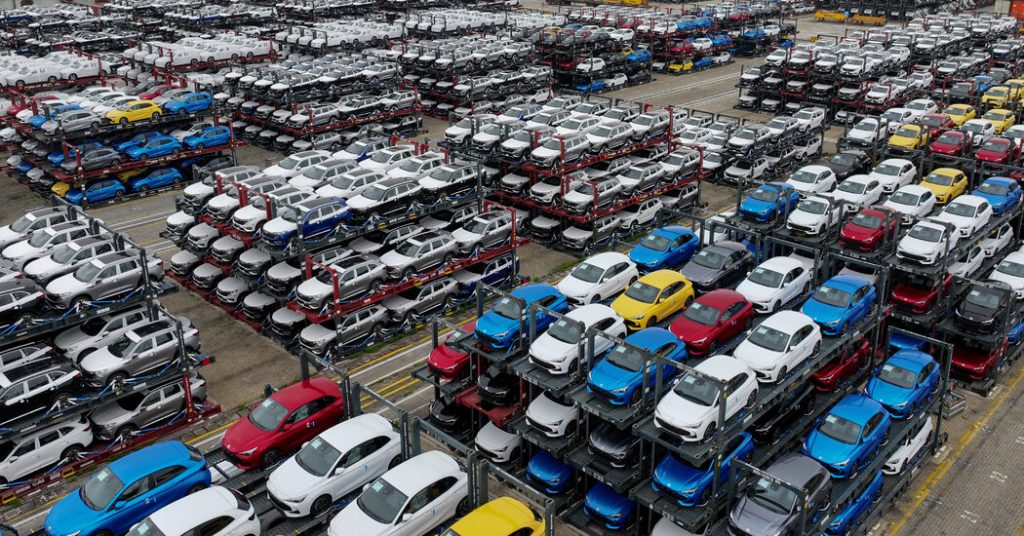The United States and China, the two most powerful countries in the world, are meeting in Washington to discuss climate change and trade issues. In an ideal world, both countries would collaborate on the clean energy transition, but in reality, the U.S. is hesitant to rely too much on Chinese-made products, fearing economic and national security consequences. The U.S. wants to reduce greenhouse gas emissions by promoting electric vehicles and solar panels, but also wants to prioritize American-made products over Chinese imports, creating a dilemma for the Biden Administration.
The flood of Chinese exports, particularly in green-energy technology, has been a point of contention for the Biden administration as it aims to boost American industries. The U.S. climate envoy, John Podesta, has criticized China for distorting the global market for clean energy products like solar panels and batteries. On the other hand, China argues that without its technology and manufacturing capacity, clean energy costs would rise, slowing down the global shift away from fossil fuels. Both countries are competing to establish dominance in the clean energy sector while navigating trade tensions and national security concerns.
The European Union has also expressed concerns about Chinese dominance in clean energy technologies, investigating whether Chinese-made electric vehicles have benefited from unfair subsidies. China holds a significant share of the production of solar panels, wind turbines, batteries, and electric vehicles, as well as processing most of the minerals essential for clean energy technologies. The Biden administration is striving to build a domestic renewable energy industry while facing intense competition from China and concerns about national security and job losses.
The rivalry between the U.S. and China presents challenges as well as opportunities for both countries. Depending too much on a rival country’s factories raises national security concerns and risks jeopardizing domestic industries, while shunning those factories can raise costs and slowdown the clean energy transition. The Biden administration has set ambitious climate goals, but competing with China on low-carbon manufacturing may be a losing battle according to experts.
The dispute over Chinese exports adds to the existing tensions between Beijing and Washington over issues such as Taiwan, the Russian invasion of Ukraine, and differences in democratic values. In the face of elections, U.S. politicians, including President Biden, are emphasizing renewable energy investments and efforts to revive American manufacturing. The recent passage of the Inflation Reduction Act has provided incentives for renewable energy projects and manufacturing, aiming to reduce dependence on China while boosting domestic industries.
In conclusion, the meeting between U.S. and Chinese officials underscores the challenges of navigating the clean energy transition while addressing trade tensions and national security concerns. Both countries are vying for dominance in the clean energy sector, which has implications for global climate efforts and economic competition. The outcome of their discussions will impact the future of clean energy technology and production, as well as the broader geopolitical relationship between the two superpowers.


